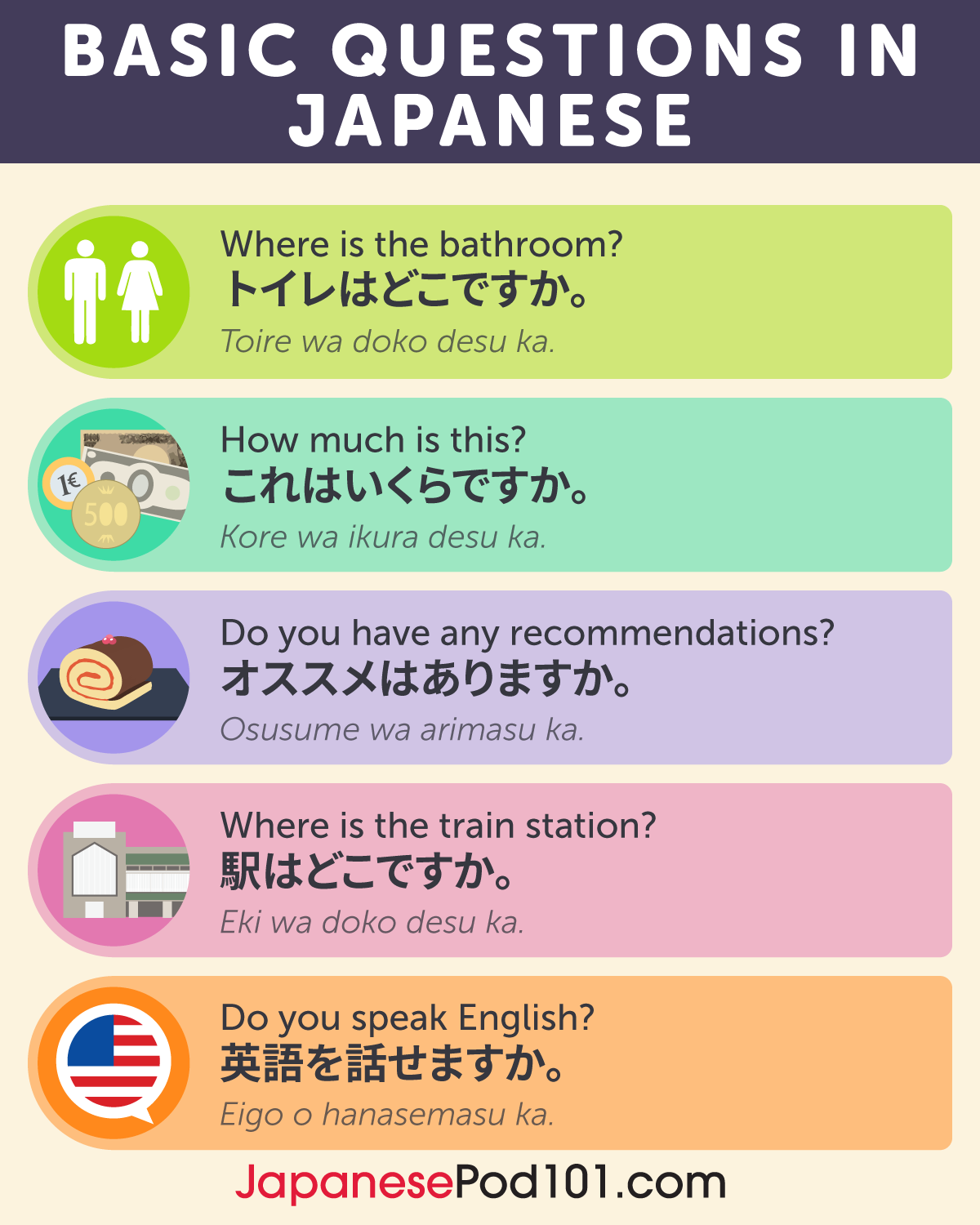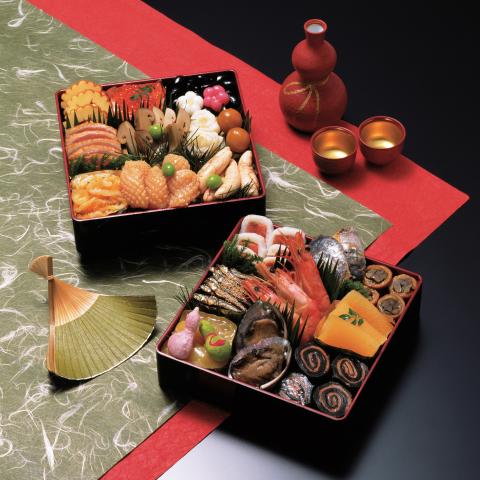Giving proper greetings and celebration messages is essential in making relationships better. Whether you have Japanese friends online, live in Japan, or just want to understand Japanese culture, it’s good to know how Japanese people celebrate events and what they say. Once you learn how to say Happy Birthday in Japanese, Happy New Year in Japanese, and Merry Christmas in Japanese, use them practically with your friends!
Japan has various life and annual events to celebrate. Some of them come from the Western culture, such as Christmas and Valentine’s Day. But there are unique Japanese traditions as well, such as the twentieth and sixtieth birthdays, also called 成人 (Seijin) and 還暦 (Kanreki) respectively.
So, how do you wish someone well in Japanese? In this article, we introduce practical life event messages. Let’s master holiday greetings in Japanese, and more, here at JapanesePod101!
- Birthday + Turning 20 Years Old
- Japanese Congratulations: Graduation
- Japanese Congratulations: New Job / Promotion
- Retirement + Turning 60 Years Old
- Japanese Congratulations: Wedding & Marriage
- Japanese Congratulations: Pregnancy and Birth
- Bad News
- Injured/Sick
- Death/Funerals: Offering Condolences in Japanese Culture
- Holidays
- Conclusion: How JapanesePod101 Can Help You Learn More Japanese
1. Birthday + Turning 20 Years Old
As is the case in other cultures, birthdays are a happy celebration in Japan. Japanese people celebrate one’s birthday with a cake with candles, and by singing the Happy Birthday to You song in English (Japanese people also sing this song in English because it’s very easy and simple). In most cases, people have a birthday party, and friends and family give gifts to the birthday person.
A person’s twentieth birthday is very important in Japanese culture, because this is the official age of maturity, called 成人 (Seijin) in Japan, and one is officially recognized as an adult. Apart from individual twentieth birthday celebrations, Japan has the national holiday 成人の日 (Seijin no Hi), or “Coming of Age Day,” on the second Monday of January every year.
Check out our Coming of Age Day page for related Japanese vocabulary.
Here are phrases to say Happy Birthday in Japanese.
1- Happy birthday!
Japanese: (お) 誕生日おめでとう!
Pronunciation: (O)tanjōbi omedetō!
It literally translates to “birthday (tanjōbi) congratulations (omedetō).” It sounds more polite when you put お (O) in front of tanjōbi.
When you want to say it during a formal occasion, or to an older person, add ございます (gozaimasu) to the end, which makes it even more polite.
2- Belated happy birthday!
Japanese: 遅くなったけど、(お)誕生日おめでとう!
Pronunciation: Osoku natta kedo, (o)tanjōbi omedetō!
You can still wish your friends a happy birthday, even if you weren’t able to do so on the actual day!
Osoku natta kedo means “It’s late, but…” To make it more polite and formal, say Osoku narimashita kedo.
3- Wish you enjoy a special day!
Japanese: 特別な日を楽しんでね!
Pronunciation: Tokubetsu na hi o tanoshinde ne!
A birthday is a special day, and when you want the birthday girl/boy to enjoy it, you can tell her/him this phrase.
To say it politely in a formal way, change ね (ne) to ください (kudasai).
It’s common to sing Happy Birthday to You in Japan.
2. Japanese Congratulations: Graduation
Whether it’s a kindergarten or university, completing school is worth a happy celebration. Japanese schools have both entrance and graduation ceremonies at the schools, which family members also attend.
Graduation from a university is often a big celebration, especially for the graduate’s parents who get to experience the fulfilling feeling of having finished raising their child. Graduates also celebrate with friends for their achievements and the good memories they made together.
Here are phrases for celebrating graduation.
1- Congratulations for your graduation!
Japanese: 卒業おめでとう!
Pronunciation: Sotsugyō omedetō!
It literally translates to “graduation (sotsugyō) congratulations (omedetō).” For formal occasions, such as when a school principal is addressing students, add ございます (gozaimasu) to the end. This makes it polite and respectful.
2- Well done for striving for four years!
Japanese: 大変な4年間よく頑張ったね!
Pronunciation: Taihen na yo-nenkan yoku ganbatta ne!
You can say this phrase to family members or friends. When you just want to say “well done,” it’s yoku ganbatta ne.
3- Lead your way step by step to make your dream come true.
Japanese: 夢に向かって一歩一歩進んでください。
Pronunciation: Yume ni mukatte ippo ippo susunde kudasai.
This phrase is often used by parents or seniors to a new graduate to encourage his/her new path in life.
It literally means “toward a dream (yume ni mukatte),” “step by step (ippo ippo),” and “go forward (susunde kudasai),” in a polite way.
Graduation of Japanese schools is in March.
3. Japanese Congratulations: New Job / Promotion
When a new university graduate gets a new job, family and friends celebrate him/her, usually by going out for a nice dinner. Some parents give a gift that will be useful for their work, such as a watch or a set of suits. In return, the child takes his or her parents out for a nice dinner once he/she gets their first salary.
When someone has a job promotion, family, friends, and sometimes his/her boss and team, celebrate him/her. It doesn’t necessarily involve giving a gift, but people go out for a drink or dinner, in most cases.
Here are phrases to celebrate getting a new job/promotion in Japanese.
1- Congratulations for your new job / promotion!
Japanese: 就職 / 昇進おめでとう!
Pronunciation: Shūshoku / Shōshin omedetō!
It literally translates to “employment (shūshoku) / promotion (shōshin),” and “congratulations (omedetō).” You can use this phrase to congratulate your friends, family, and younger colleagues.
In Japan, the start of work for newly employed graduates is usually in April.
2- Good luck in your new workplace.
Japanese: 新しい職場で頑張ってね。
Pronunciation: Atarashī shokuba de ganbatte ne.
This is a very useful phrase to use when your friend or family member gets a new job.
It breaks down to “at new workplace (atarashii shokuba de),” and “strive well (ganbatte ne).” If you want to say it more politely for a formal setting, change ね (ne) to ください (kudasai).
3- I’m looking forward to your success.
Japanese: あなたの活躍を楽しみにしています。
Pronunciation: Anata no katsuyaku o tanoshimi ni shite imasu.
This is a polite phrase that a family member or boss/elder colleague can tell someone who gets a new job or a promotion. It breaks down to “your success (anata no katsuyaku),” and “I’m looking forward to (tanoshimi ni shite imasu).”
4. Retirement + Turning 60 Years Old
Traditionally, the age of retirement in Japan is sixty. In the traditional Japanese employment system, called 終身雇用 (Shūshin koyō), or “life-time employment,” retirement means that someone has finished working by serving a company for some decades. It’s considered honorable and respectable.
Not only family, but also his/her company and colleagues, often have a celebration party with flowers and gifts. Nowadays, due to an increase in the aging population, active and healthy seniors continue to work after they turn sixty years old, sometimes until their sixty-fifth of seventieth birthday.
On the other hand, turning sixty years old is considered good fortune and a cause to celebrate; this celebration is called 還暦 (Kanreki). Following the traditional sixty-year calendar cycle of the lunar calendar, turning sixty means accomplishing its cycle. Thus, it’s the beginning of another cycle in his/her life. The person’s family celebrates him/her by giving gifts in red, which is the color of fortune.
Below are phrases to celebrate retirement/sixtieth birthdays in Japanese.
1- Congratulations for your retirement!
Japanese: 定年退職おめでとう!
Pronunciation: Teinen taishoku omedetō!
This is a very common phrase of congratulations. It literally translates to “retirement age resignation (teinen taishoku) congratulations (omedetō).”
When you want to say it for a formal occasion, add ございます (gozaimasu) to the end; this makes it even more polite.
2- Well done for 30 years of contribution.
Japanese: 30年間の献身お疲れ様でした。
Pronunciation: San-jū-nenkan no kenshin otsukare-sama deshita.
お疲れ様 (Otsukare-sama) is one of the most common Japanese untranslatable words. It has various meanings, depending on the situation. But in this case, it means “Well done.”
3- Please enjoy your new stage of life.
Japanese: 次の新しい人生を楽しんでください。
Pronunciation: Tsugi no atarashii jinsei o tanoshinde kudasai.
Retired people often spend plenty of their new free time for hobbies and enjoyment. This polite phrase is useful when you wish for someone to have a nice life after retirement.
5. Japanese Congratulations: Wedding & Marriage
The average age of a person’s first marriage nowadays is older (around thirty) than it was some decades ago; people’s views on marriage are becoming more diverse and flexible, as well. However, getting married and having a wedding is still a big life event in Japan.
Japanese marriage traditions typically include the following:
- 結納 (yuinō), or “engagement ceremony”
- 入籍 (nyūseki), or “official marriage register”
- 挙式 (kyoshiki), or “wedding ceremony”
- 披露宴 (hirōen), or “wedding party”
The western style of wedding ceremonies is becoming very popular in Japan, although there are some people who prefer the traditional Japanese style with the 着物 (kimono).
So, how do you congratulate a wedding in Japanese? Below are phrases for celebrating marriage in Japanese.
1- Congratulations for your marriage!
Japanese: 結婚おめでとう!
Pronunciation: Kekkon omedetō!
This is a very common phrase for congratulations in Japanese when someone is getting married. It literally translates to “marriage (kekkon) congratulations (omedetō).”
When you want to say it in a formal occasion, add ございます (gozaimasu) to the end; this makes it even more polite.
2- I wish you happiness for many years to come.
Japanese: 末長くお幸せに。
Pronunciation: Suenagaku o-shiawase ni.
It literally translates to “for a long time (suenagaku), be happy (o-shiawase ni).” This phrase is also commonly used together with Kekkon omedetō.
3- Have a wonderful married life.
Japanese: 素敵な結婚生活を送ってね。
Pronunciation: Suteki na kekkon seikatsu o okutte ne.
This is another common message for a newly married couple. When you want to say it in a formal occasion, change ね (ne) to ください (kudasai).
Japanese weddings are conducted in either the western style or the Japanese traditional style.
6. Japanese Congratulations: Pregnancy and Birth
Pregnancy and birth are auspicious events in someone’s life. Traditionally, people give congratulation messages when a pregnant woman announces her pregnancy, and send her gifts after the baby is born. Japanese culture doesn’t have a “baby shower” celebration traditionally; however, the baby shower is becoming popular among young people due to the influence of western culture.
Below are phrases to celebrate pregnancy/birth in Japanese.
1- Congratulations for your pregnancy!
Japanese: 妊娠おめでとう!
Pronunciation: Ninshin omedetō!
For a formal occasion, change 妊娠 (ninshin), meaning “pregnancy,” to ご懐妊 (go-kainin), which is a more respectful form of the word “pregnancy,” and add ございます (gozaimasu) to the end to make it more polite and respectful. However, this form is very formal and not commonly used.
2- I wish a healthy baby will be born.
Japanese: 元気な赤ちゃんが生まれますように。
Pronunciation: Genki na aka-chan ga umaremasu yō ni.
It literally means “lively baby (genki na aka-chan), be born (umaremasu)” + expression of wish (yō ni).
This phrase is also commonly used together with Ninshin omedetō.
3- Congratulations for a baby’s birth!
Japanese: 赤ちゃんの誕生おめでとう!
Pronunciation: Aka-chan no tanjō omedetō!
Tell this message when your friend has their baby. For a formal occasion, add ございます (gozaimasu) to the end; this makes it more polite and respectful.
7. Bad News
Life isn’t always full of happy events and celebrations, and sometimes bad things can happen in our lives. In Japanese culture, it’s very important to have empathy and give consideration to other people’s feelings. This is because the culture puts values on 和 (Wa), or harmony in our society.
When someone tells you bad news, it’s good to listen carefully first, show that you understand him/her, and then say something to cheer him/her up.
Here are some Japanese condolences messages that you can say to those who have bad news.
1- I’m sorry to hear that.
Japanese: それは残念です。
Pronunciation: Sore wa zannen desu.
It literally translates to “it is regrettable (sore wa zannen)” + polite way to finish a sentence (desu).
Say this to your colleague, for example, if he confides in you that he couldn’t pass a promotion exam, or his pet has passed away.
2- I understand your feelings.
Japanese: あなたのお気持ち分かります。
Pronunciation: Anata no o-kimochi wakarimasu.
It literally translates to “your feeling [polite] (anata no o-kimochi), I understand (wakarimasu).” This is a typical message to show that you understand him/her and that you’re with him/her.
3- Cheer up!
Japanese: 元気出して!
Pronunciation: Genki dashite!
This is a very straightforward phrase to cheer someone up. Say this phrase to your friends or someone who has a close relationship with you.
8. Injured/Sick
An unexpected injury or sickness can happen anytime and to anyone. Whether it happened to your grandparent, friend, or colleague, it’s always nice to offer him or her some warm messages.
Here are some useful phrases you can say to those who get injured/sick.
1- How are you feeling?
Japanese: 気分はどうですか。
Pronunciation: Kibun wa dō desu ka.
This is a typical question you can ask when someone falls ill. If it’s a family member or someone very close to you, you can also say kibun wa dō? in a casual manner. Japanese people often make おかゆ (O-kayu), or “rice porridge,” for a sick person as an easy-to-digest and stomach-friendly meal.
2- I hope you get well soon.
Japanese: 早く良くなりますように。
Pronunciation: Hayaku yoku narimasu yō ni.
This is a very common and important phrase that you can tell any injured or sick person.
3- Please take care.
Japanese: お大事に。
Pronunciation: O-daiji ni.
This is another very important phrase you should tell an injured/sick person. This is usually said at the end of a conversation before you leave.
For a more polite form, add なさってください (nasatte kudasai) when speaking to someone elderly or respectable.
Healthcare in Japan provides universal-care based on the national health insurance program.
9. Death/Funerals: Offering Condolences in Japanese Culture
While a newborn life is blessed and celebrated, any life is destined to experience death sooner or later. Death is considered a serious matter, and a funeral is usually held solemnly. Even if it happened to a person who is very close, Japanese people use formal and respectful language for messages to the deceased’s family and relatives.
Below are condolence phrases in Japanese that you can use.
1- Please accept my sincere condolences.
Japanese: お悔やみ申し上げます。
Pronunciation: O-kuyami mōshiagemasu.
This phrase is formal and commonly used to show your condolences, usually at a funeral. It literally translates to “condolence (o-kuyami), [I] say (mōshiagemasu).” Note that the last word here is the most respectful and humble expression for the word “say.”
2- I pray that his/her soul may rest in peace.
Japanese: ご冥福をお祈りいたします。
Pronunciation: Go-meifuku o oinori itashimasu.
This phrase is formal and very commonly used. It literally translates to “happiness in the next world (go-meifuku), [I] pray (oinori), do (itashimasu).” Note that the last word here is a humble expression.
3- I’m so sorry, I don’t know what to say.
Japanese: 御愁傷様です。なんと言っていいかわかりません。
Pronunciation: Go-shūshō-sama desu. Nan to itte ii no ka wakarimasen.
You can use this polite phrase when someone tells you that someone you know has passed away. Go-shūshō-sama refers to a thing or status that people lament and grieve.
10. Holidays
Do you know whether Japanese people celebrate Christmas in Japan? Yes, they do! However, most Japanese people don’t have any religious feeling for Christmas celebrations; it’s rather regarded as a special and romantic event for couples, or as a happy event for friends and family to eat cakes and give gifts. Christmas Day isn’t a national holiday in Japan.
On the other hand, お正月 (o-shōgatsu), or New Year’s Day, is a traditional annual festive holiday. It’s one of the most important events of the year, and family and relatives get together and celebrate the coming new year. January 1 is the actual holiday, and many companies are off from the end of the year until the first few days of January.
Here are phrases for holiday greetings in Japanese, including how to say Merry Christmas in Japanese and Japanese New Year congratulations!
1- Merry Christmas!
Japanese: メリークリスマス!
Pronunciation: Merī kurisumasu!
How to say Merry Christmas in Japanese is almost the same as in English. It’s directly imported in Japanese, but Japanese people pronounce it in the Japanese way. Also, it’s written merī kurisumasu.
Check out Must-Know Christmas Day Vocabulary for more Christmas-related terms in Japanese.
2- Happy New Year!
Japanese: 明けましておめでとう!
Pronunciation: Akemashite omedetō
“Happy New Year” in Japanese is akemashite omedetō, which literally means “(a new year day has) dawned (明けまして), congratulations (omedetō).” This is the most-used phrase for “happy holidays” in Japanese for the new year.
When you want to say it in a formal occasion or to an older person, add ございます (gozaimasu) to the end; this makes it even more polite.
3- To another good year!
Japanese: 今年もよろしく!
Pronunciation: Kotoshi mo yorosiku!
This phrase is very popular among friends, colleagues, and clients.
Kotoshi mo means “this year, too” and yoroshiku is another one of the most common Japanese untranslatable words. It has various meanings depending on the situation, but in this case, it means “best regards” or “favorably please.”
For more useful holiday greetings in Japanese, check out Holiday Greetings and Wishes for the Holiday Season and Happy New Year! Words & Phrases for the New Year! You’ll learn Japanese winter seasonal greetings and customs.
おせち (osechi) is a special meal for the New Year in Japan, and we eat it with best wishes phrases in Japanese.
11. Conclusion: How JapanesePod101 Can Help You Learn More Japanese
We introduced Japanese life event messages, such as how to say Happy Birthday in Japanese and Merry Christmas in Japanese. I hope this article was useful in improving your Japanese for better communication with your friends!
If you would like to learn more about the Japanese language and holiday greetings in Japanese, you’ll find much more useful content on JapanesePod101.com. We provide a variety of free lessons for you to improve your Japanese language skills.
For more about Japanese holidays and Japanese holiday vocabulary, check out Holidays in Japan. To learn about how to express your feelings, you’ll find Words and Phrases to Help You Describe Your Feelings useful; you can even learn and practice your pronunciation with audio. And for conversation practice, Top 15 Questions You Should Know for Conversations and Top 10 Conversational Phrases are very helpful!
Know that your hard work will pay off; with enough practice, you’ll be speaking like a native in no time with JapanesePod101.com!
Before you go, let us know which of these phrases you’ll be able to use first! Are there any life event messages you still want us to cover? Let us know in the comments!




















